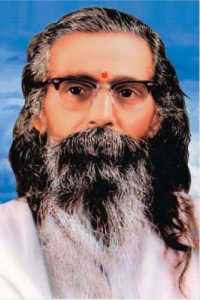Golwalkar- The Guru Of Hate – Ramachandra Guha
First Published in The Hindu, 28 November, 2006
This column generally deals more — much more — in appreciation than in depreciation. However, it is obligatory on the historian to also (occasionally) notice individuals whose influence on history was malign rather than salutary. One such person was the Hindutva (A Right Wing ideology NOT to be mistaken for Hinduism the religion) ideologue M.S. Golwalkar, whose birth anniversary his followers are marking this year.
Early initiation
Born in February 1906, Golwalkar studied and then taught briefly at the Banaras Hindu University (hence the appellation "Guru", which he carried for the rest of his life). He joined the Rashtriya Swayamsewak Sangh as a student, attracting the attention of its founder, Dr. K.B. Hedgewar. When the elder man died in 1940, Golwalkar became the sarchangchalak of the RSS. He headed the organisation until his death some three decades later.
Golwalkar was a man of much energy and dynamism, under whose leadership the RSS steadily grew in power and influence. His ideas are summarised in the book Bunch of Thoughts, which draws upon the lectures he delivered over the years (mostly in Hindi) to RSS shakhas across the country. This identifies the Hindus, and they alone, as the privileged community of India. It disparages democracy as alien to the Hindu ethos and extols the code of Manu, whom Golwalkar salutes as "the first, the greatest, and the wisest lawgiver of mankind".
Angels and demons
The early chapters of Bunch of Thoughts celebrate the glories of the Motherland and its chief religion, this a prelude to the demonisation of those Indians who had the misfortune of not being born into the Hindu fold. Golwalkar writes that the "hostile elements within the country pose a far greater menace to national security than aggressors from outside". He identifies three major "Internal Threats: I: The Muslims; II: The Christians; III: The Communists". A long chapter impugns the patriotism of these groups, speaking darkly of their "future aggressive designs on our country".
On January 30, 1948, Mahatma Gandhi was murdered by Nathuram Godse. Although Godse was not a member of the RSS at the time of the murder, he had been one in the past. And there were reports that in several places RSS members had celebrated his act by distributing sweets. As a precautionary measure, Golwalkar and other RSS workers were put in jail.
Secret documents that this writer has recently seen strongly suggest that even if the RSS was not directly implicated in Gandhi's murder, its main leader was not entirely averse to such a happening. Thus, on December 6, 1947, Golwalkar convened a meeting of RSS workers in the town of Govardhan, not far from Delhi. The police report on this meeting says it discussed how to "assassinate the leading persons of the Congress in order to terrorise the public and to get their hold over them".
Two days later, Golwalkar addressed a crowd of several thousand volunteers at the Rohtak Road Camp in Delhi. The police reporter in attendance wrote that the RSS leader said that "the Sangh will not rest content until it had finished Pakistan. If anyone stood in our way we will have to finish them too, whether it was Nehru Government or any other Government… " Referring to Muslims, he said that no power on earth could keep them in Hindustan. They should have to quit this country… "If they were made to stay here the responsibility would be the Government's and the Hindu community would not be responsible. Mahatma Gandhi could not mislead them any longer. We have the means whereby [our] opponents could be immediately silenced".
Dogged commitment
Six weeks later, Gandhi was assassinated, and Golwalkar and his colleagues put in jail. Released a year later on a bond of good behaviour, they retained a dogged commitment to their ideas. Golwalkar himself argued that "in this land Hindus have been the owners, Parsis and Jews the guests, and Muslims and Christians the dacoits". He asked, maliciously: "Then do all these have the same right over the country?"
Golwalkar saw Muslims, Christians and Communists (among others) as threats to the nation. Other Indians saw him and his ilk as a "Danger to our Secular State". The words in quotes served as the title of an essay on Golwalkar written in 1956 by the Bombay columnist D.F. Karaka. The RSS leader, noted Karaka, "thinks in terms of Hindu India and only Hindu India". As one who had many criticisms to make of the Prime Minister of the day, the columnist nonetheless believed that "it is necessary for all of us whatever our differences are with Mr. Nehru to stand firm with him on this point, namely, that ours is a secular state and that whether we are Hindus, Muslims, Parsis or Christians, freedom of religion, which is guaranteed to us under our Constitution should not be allowed to be crucified at the altar of the RSS — the organisation from which came the man who murdered Mahatma Gandhi".
Failed project
Karaka's column was sparked by the celebration by the RSS of the 50th birthday of Madhav Sadashiv Golwalkar. In this, the year of his 100th birth anniversary, all I need do is endorse Karaka's words. For, Golwalkar was a guru of hate, whose life's malevolent work was — as Jawaharlal Nehru so memorably put it — to make India into a "Hindu Pakistan". That project has not succeeded yet, and may it never succeed either.


No comments:
Post a Comment